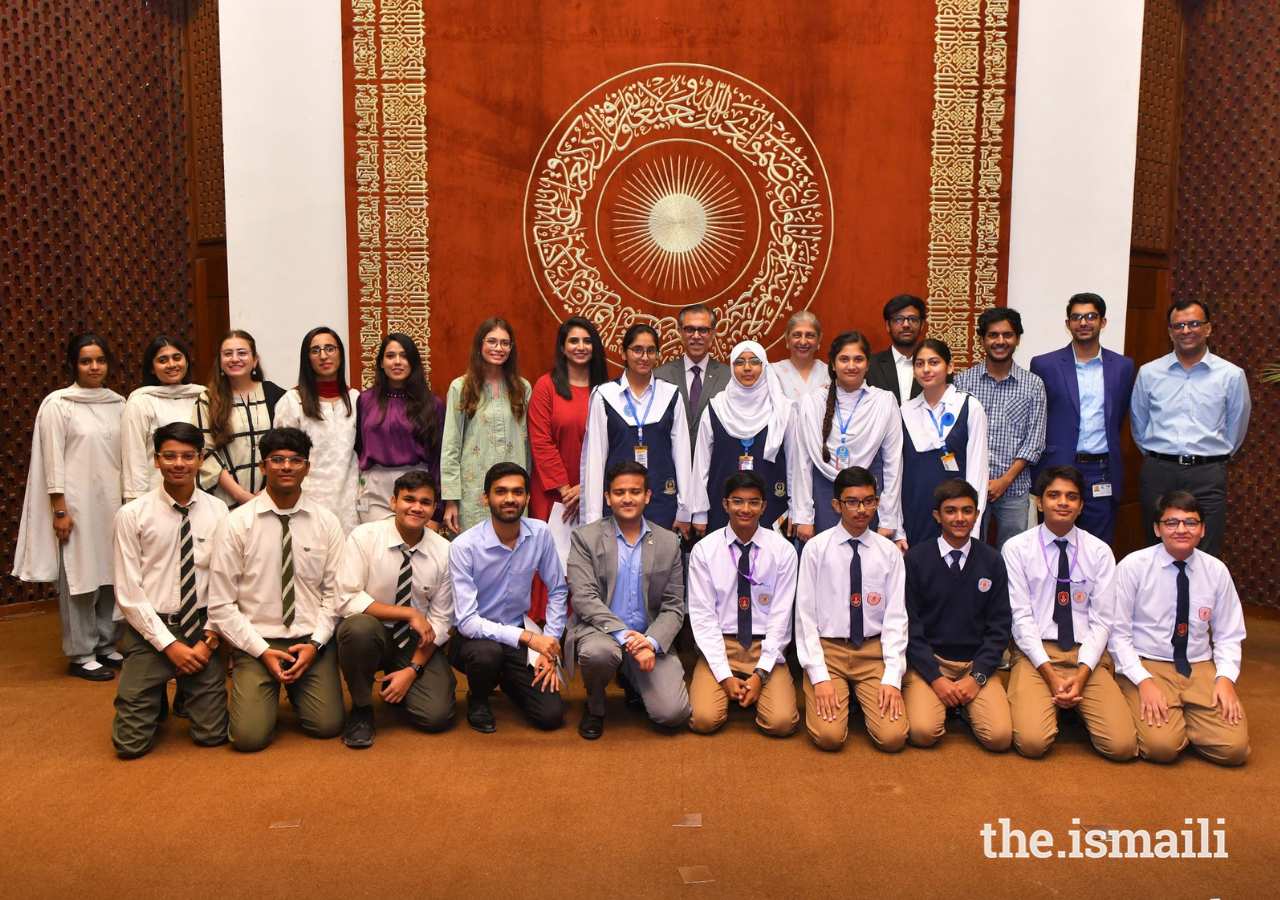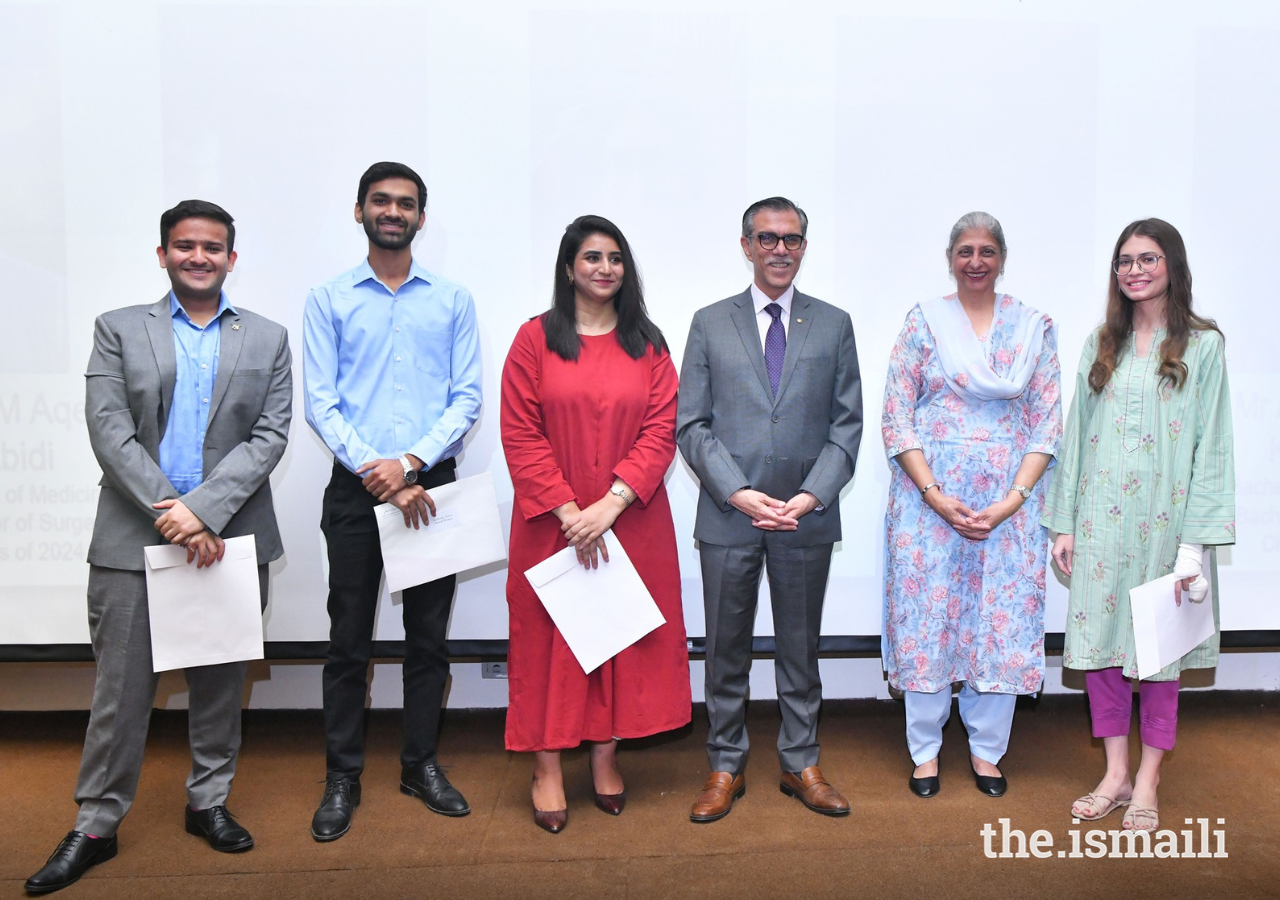Young people in the developing world are among those most affected by the climate crisis. Though in the face of despair and anxiety about the situation, many are focussed on envisioning and designing a more sustainable future.
To harness and streamline this positive energy, the Aga Khan University last year introduced students to its inaugural President’s Challenge for Climate Solutions. The new initiative aims to ensure that youth voices are heard and represented in AKU’s environment and sustainability agenda — a key strategic priority for the University and all of AKDN.
The challenge was conceptualised to inspire and encourage the next generation of leaders to envision and develop strategies for mitigation, adaptation, and resilience in the face of climate change, centred in its inaugural year on the theme of ‘wasting nothing.’ Welcoming participation from Pakistan and East Africa, the President’s Challenge engaged AKU’s students as well as local school children from 24 schools in Karachi in an aim to spread awareness throughout local communities.
The annual challenge is one many initiatives and projects that are contributing to AKDN-wide commitment on environment and climate, and its specific commitment to achieve net zero carbon operations by 2030.
“We launched the President’s Challenge earlier this year because we know our students don’t want to sit on the sidelines as the world grows even hotter,” said AKU President Sulaiman Shahabuddin, addressing participants during the closing ceremony of the project’s first cycle. “The thoughtfulness with which you responded to our call for action is another demonstration of your great potential,” he added.
Participating teams were made up of three to five students each, all channelling their creative and enterprising talents to develop projects that respond to the complex challenges of climate change. After much deliberation, judges awarded the inaugural prizes to three winning teams: ReLast, Climatica, and Think Green.
“We were motivated by AKU’s efforts to be more environmentally-responsible, and wanted to play our part,” said Team ReLast, who devised an innovative recycling system that repurposes plastic waste into high quality products. “We learned the importance of a multidisciplinary approach, as this is what sets apart great ideas from the others.”
The Climatica team proposed creating an AKU-wide ride sharing app for students and staff to travel to and from campus, offering a gamified way to raise awareness of and track carbon emissions.
“Despite having the lowest carbon footprint, the countries in Africa and Asia bear the brunt of the global warming crisis, with their livelihoods and aspirations at risk. Yet, us young people have a chance,” their team said. “We have access to the Internet and various technological tools, which we use to collect information and which can be used to bring about a positive change.”
Think Green focused on the growing issue of waste management. “We produce millions of tonnes of waste each day, which produces greenhouse gases that contribute to the climate crisis,” they said. “The impact it has on our planet is very evident.”
Using a circular approach, their team designed an eco-friendly and biodegradable alternative to sanitary pads in an aim to reduce the amount of synthetic waste that ends up in landfills, open spaces, and even oceans.
During the closing ceremony, a special video message was delivered by chief guest Prince Hussain, who commended AKU for initiating the challenge and acknowledged students’ participation and continuing sustainability efforts.
“A sense of responsibility to others, and a desire to contribute to the quest for solutions to grand challenges are key attributes of AKU, its students, graduates, faculty, and staff,” he said. “I’m glad to see the spirit of service lives in a new generation.”
Prince Hussain also spoke of the importance for us all to protect nature’s fragile abundance, diversity, and health. Despair about the state of today’s environment can lead to inaction, he added, and it's vital that we instead each do our part to address what has become the most urgent issue of our times.
“The reality is that there is much that we can do to limit climate change and there is no time to waste,” he said.










